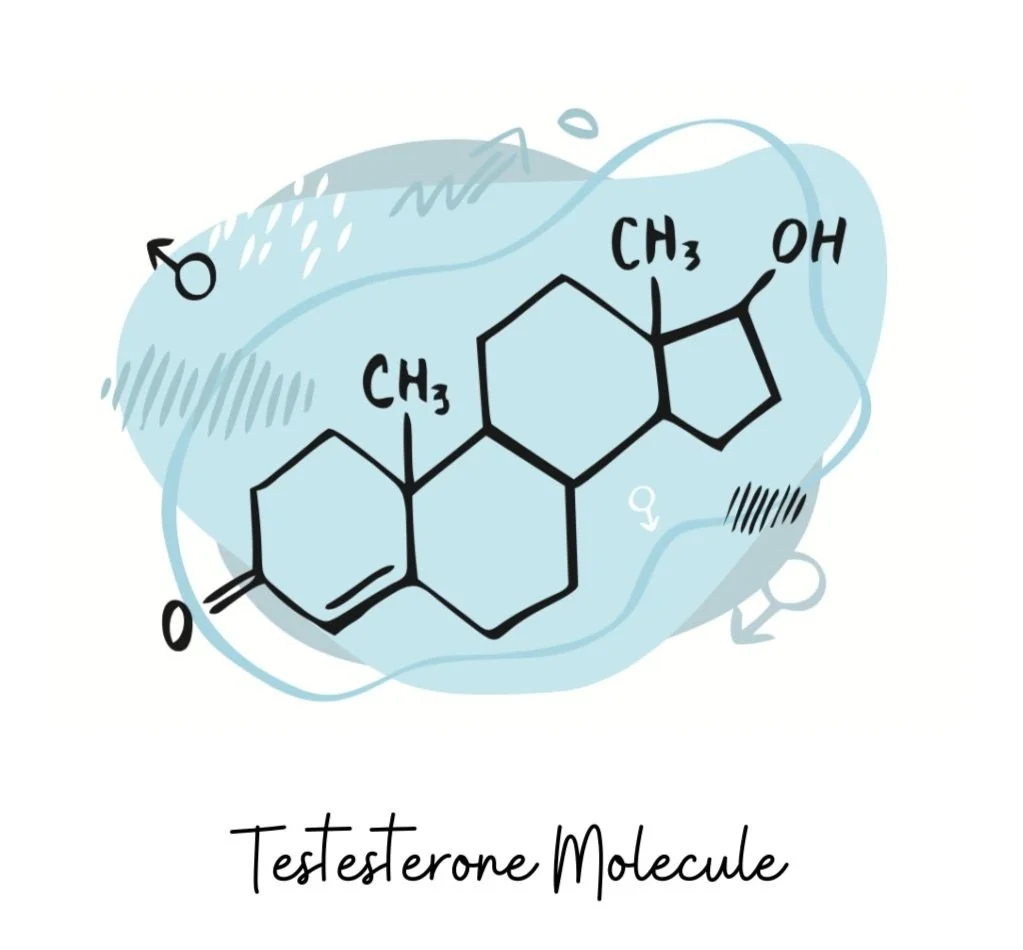Hormones 101 Pt. 2: Testosterone, Growth Hormone, and DHEA
Testosterone, Growth Hormone, and DHEA are often thought of as “male” hormones, but this is not the case. In fact, testosterone is the most abundant biologically active hormone in the female body!
First, What is a Hormone?
A hormone is a chemical messenger made primarily by glands in the endocrine system, but other organs and tissues do create and release them as well. They travel through the blood stream communicating with other parts of the body and telling them what to do.
Testosterone is produced in the ovaries, adrenal glands, fat cells, and skin cells. It can be thought of as a “building” hormone with important roles in sex and even love.
Testosterone functions:
Maintains healthy sexual libido
Protects the heart and arteries/reduces risk of heart disease
Prevents joint and muscle pain
Builds muscle
Preserves bone mass
Reduces body fat including cellulite
Tightens and tones the skin
Stimulates hair growth, especially on the head
Increases ability to withstand stress
Provides energy and endurance
Makes you assertive and self-assured
Protects pancreas, kidneys, and digestive organs
Signs of low testosterone:
Declining sex drive
Thinning hair under arms and pubic area
Premature hair loss at the temples (sides of the forehead)
Clitoris less sensitive than it used to be
Painful vaginal intercourse
Feelings of passivity, less likely to take risks
Agitated sleep
Flabby cheek muscles
Overall “soft” appearance
Growth Hormone is an essential metabolic hormone produced in the pituitary gland (base of the brain). It is often thought of as the substance abused by athletes in synthetic form to increase muscle size and strength, but healthy natural levels are critical for normal weight management and fitness.
Growth hormone functions:
Central in weight loss
Keeps muscles lean by building muscle and burning fat
Keeps bones strong
Helps keep the spine straight
Provides energy and endurance
Makes sleep more restorative
Lessens anxiety, provides feelings of serenity and security
Signs of a growth hormone deficiency:
Sagging face, thin lips, droopy eyelids
Overhanging belly
Fatty cushions (fat deposits) above the knees
Thin, limp hair
Dehydrated skin
Loose, hanging muscle
Normal height, but beginning to hunch over
Decreased bone density
Dehydroepiandrosterone (DHEA) is made primarily in the adrenal glands. DHEA doesn’t do much on its own, but it is a precursor to important sex hormones like testosterone and estrogens.
DHEA functions:
Strengthens muscles
Stimulates immunity
Boosts energy levels
Fights anxiety and depression
Improves mood
Increases libido
Enhances memory
Controls some of the negative effects of cortisol
Promotes hair growth under arms and in pubic area
Fights cancer, diabetes, and heart disease in animal studies
Signs of DHEA deficiency:
Dry and lackluster eyes
Dry and delicate skin
Tendency to have a pot belly
Feeling insecure, sad, gloomy
Low libido
Low energy
Thinning hair under arms and pubic area
Based on the information above, do you think you may be suffering from a hormone imbalance? Book a free intro call to see if I can help!

